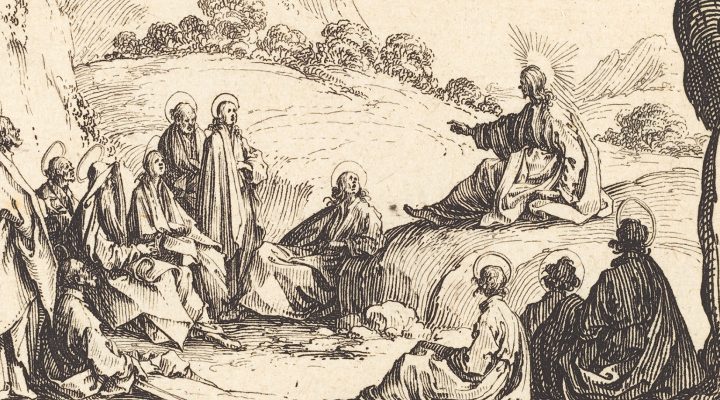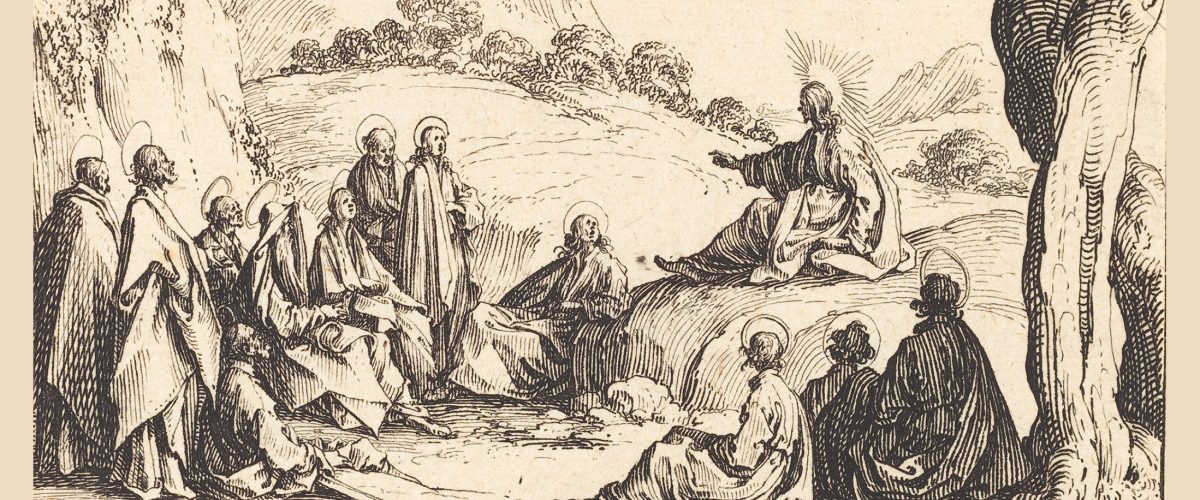In the powerful movie Lincoln, there is a scene in which the president and Secretary of War Edwin Stanton join other colleagues to discuss war strategies. Suddenly, Lincoln starts recalling a folksy story from his days as an Illinois lawyer, and Stanton shouts something like “My God, not another story! I can’t stand another of your stories!” and storms out of the room. (I sanitized the language a bit.)
Lincoln historian Ross Peterson comments: “Stanton would go crazy when Lincoln would tell his stories. They’d be in the middle of a heavy discussion, and Lincoln would start telling a story. He was a prolific storyteller. Sometimes people would see the point, sometimes they wouldn’t.”

Bill Leonard
“My God, not another parable!” Can’t you just hear the disciples saying that when Jesus again ventured down that parabolic gospel road?
Imagine Simon Peter’s directness: “You are the Christ, the Son of the living God, but we don’t have the slightest idea what you are talking about. Can’t you just say what you mean without these abstruse stories?”
In Matthew 13, the disciples finally ask him, “Why do you speak to people in parables?” And Jesus replies:
Though seeing, they do not see;
though hearing, they do not hear or understand.
In them is fulfilled the prophecy of Isaiah:
“You will be ever hearing but never understanding;
you will be ever seeing but never perceiving.
For this people’s heart has become calloused;
they hardly hear with their ears,
and they have closed their eyes.
Otherwise they might see with their eyes,
hear with their ears,
understand with their hearts
and turn, and I would heal them.”
Hearing without understanding
In 2024, there seems increasing public perception that American Christians are hearing without understanding because our hearts have become calloused. Are we indeed amending many of Jesus’ parabolic images here and now?
“American Christians are hearing without understanding because our hearts have become calloused.”
“A man went down from Jerusalem to Jericho and fell among thieves.” But before we helped we had to know his political affiliation.
“A nobleman gave a great banquet and invited the lame, blind and the poor.” No undocumented immigrants admitted!
“The young man squandered his inheritance in riotous living.” But he can’t come home unless he votes our way!
“The people who show up at day’s end get the same wages as those who began that morning.” No more DEI hires!
“The kingdom of God is like a mustard seed.” But it grows too slowly so we need government help to hasten it along.
Eight lessons on parables
Such contemporary realities sent me back to the parables, in the biblical texts and the works of scholars who know more about them than I do. Why the parables? Because they are the vehicle Jesus uses to explain the nature of the kingdom of God and what some among us call God’s New Day in the world.
Here are some things I learned:
First, in The Power of Parables, New Testament scholar John Dominic Crossan says, “A parable is a metaphor expanded into a story or, more simply, a parable is a metaphorical story.”
It isn’t an “ordinary story,” one that “wants you to focus internally on itself.” Rather, a parable “always points externally beyond itself, points to some different or wider” reference. It is a story that is more than the sum of its details.
“A parable is a story that is more than the sum of its details.”
Second, Crossan says Jesus taught through parables because of the Romans, a lesson he learned from the decapitation of John the Baptizer. If you talk too directly and too extensively of a new kingdom in the world, the Romans will put you on their hit list. If you declare your message too soon, too publicly and too singularly, the Romans will kill you before you set it in motion.
So until you teach other folks to sow the seeds of God’s New Day, best to say it in code — give them parables. Jesus’ use of parables began as a response to a governmental, secular reality. The “kingdom” he’s describing is not protected by Roman legions.
Third, parables help people find their way into God’s New Day, through stories, not dogma. Jesus does not reject the dogmas of the law but finds them inseparable from caring for “the least of these.” He warns of those who religiously “give tithes of mint and dill and cumin” but ignore the “weightier matters” of “justice, mercy and faith.”
Fourth, parables require something of listeners, moving us beyond the details and into personal search. As Crossan says, “in the best riddling tradition . . . parables have profoundly important consequences. Success in understanding them gains you the kingdom of God.” Fail to “get it” and you miss the depths of life’s spiritual, personal and communal experience.
Fifth, in Proclaiming the Parables: Preaching and Teaching the Kingdom of God, homiletics professor Tom Long surveys the many analyses scholars have given them, including the work of the Parables Seminar in the Society of Biblical Literature. Long paraphrases Crossan’s idea that “Jesus wasn’t killed because he spoke in parables; he was killed because he believed parables, saw the world parabolically, and acted according to the powerful vision generated by parables.”
“Parables mess with our heads and, by grace, our hearts.”
Sixth, parables mess with our heads and, by grace, our hearts.
My longtime friend Paul Simpson Duke writes, “It is in the nature of parable to be unpredictable. Like Jesus himself, parables refuse the management of neat categories; they come to us on their own terms. To hear them requires uncommon openness, a suspension of expectation, a lightness on the feet.”
Parables also may readjust our personal and cultural canons. Just when his listeners thought they knew where Jesus was taking them, he’d throw in a ringer — cheating tax collectors, creepy landlords or assorted party animals.
Seventh, parables blur the lines between the sacred and the secular. On April 9, 1944, as the Allied armies were only days away from reaching him, Dietrich Bonhoeffer, Lutheran preacher and theologian, was executed in Flossenbürg concentration camp. Imprisoned for more than a year for his dissent against National Socialism, Bonhoeffer’s life of brilliant thought and courageous dissent ended that April day.
Bonhoeffer’s death seems a long way from God’s New Day, yet from prison he wrote: “The Church is the Church only when it exists for others. … The Church must share in the secular problems of ordinary human life, not dominating, but helping and serving. It must tell men (and women) of every calling what it means to live in Christ, to exist for others.”
Every parable carries us into that moral, spiritual and worldly realm.
Eighth, what does the idea of God’s New Day, to which the parables point, actually mean? Tom Long surveys multiple responses but ends by referencing Christopher Morse’s The Difference Heaven Makes: Rehearing the Gospel as News, in which Morse concludes his discussion of God’s New Day by insisting that “people of faith are ‘called to be on hand for that which is at hand. But not in hand.’”
Long adds: “It is not under our control, and it cannot be captured, institutionalized and turned into one more rival kingdom on the earth. … This means that when God’s life breaks into our lives, it makes a difference in this world, but it does not belong to this world.”
Sometimes …
And sometimes God’s New Day does break through.
“Shoot me dead, I vote yes!”
In the movie Lincoln, we observe a dramatized but reasonably authentic scene in the U.S. House of Representatives, Jan. 31, 1865. It involves the passage of the 13th Amendment to the Constitution, a document declaring: “Neither slavery nor involuntary servitude … shall exist within the United States, nor any place subject to their jurisdiction.”
Every time I watch that scene, I fight back tears as one representative votes no, asserting: “How can we grant equality to people whom God has created unequal?” Another congressman shouts out: “Shoot me dead, I vote yes!”
When the votes are counted, there are 119 votes for the amendment and 56 against — seven votes above the necessary two-thirds majority needed to end chattel slavery in the American Republic.
Sometimes God’s New Day breaks in, even if only by seven votes. One hundred fifty-nine years ago, who among us or our current Congress would have shouted: “Shoot me dead, I vote yes” to bring an end to slavery, and with that destroy the use of Scripture to defend it?
The legacy of slavery remains, along with multitudes of other “secular problems of ordinary human life.”
God’s New Day is still at hand, and Christ’s church is yet called, not to dominate but “to help and serve.” We are “sowers sent forth to sow.” Let’s get to it.
Bill Leonard is founding dean and the James and Marilyn Dunn professor of Baptist studies and church history emeritus at Wake Forest University School of Divinity in Winston-Salem, N.C. He is the author or editor of 25 books. A native Texan, he lives in Winston-Salem with his wife, Candyce, and their daughter, Stephanie.
Related articles:
The good graduate student: A modern parable | Opinion by Arthur Wright
Are we still calling him the ‘Good’ Samaritan? | Opinion by Russell Waldrop
Three stories from Jesus about the danger of hierarchy and gratitude | Opinion by Rick Pidcock


